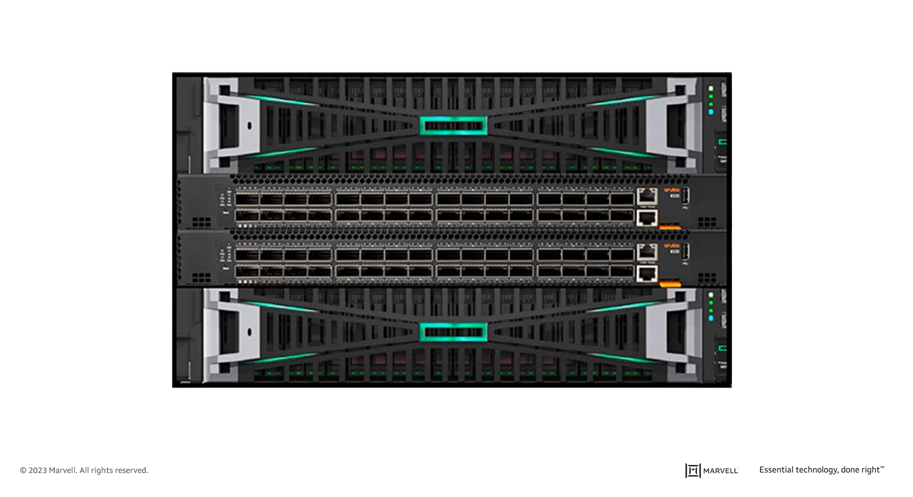

By Todd Owens, Field Marketing Director, Marvell
While Fibre Channel (FC) has been around for a couple of decades now, the Fibre Channel industry continues to develop the technology in ways that keep it in the forefront of the data center for shared storage connectivity. Always a reliable technology, continued innovations in performance, security and manageability have made Fibre Channel I/O the go-to connectivity option for business-critical applications that leverage the most advanced shared storage arrays.
A recent development that highlights the progress and significance of Fibre Channel is Hewlett Packard Enterprise’s (HPE) recent announcement of their latest offering in their Storage as a Service (SaaS) lineup with 32Gb Fibre Channel connectivity. HPE GreenLake for Block Storage MP powered by HPE Alletra Storage MP hardware features a next-generation platform connected to the storage area network (SAN) using either traditional SCSI-based FC or NVMe over FC connectivity. This innovative solution not only provides customers with highly scalable capabilities but also delivers cloud-like management, allowing HPE customers to consume block storage any way they desire – own and manage, outsource management, or consume on demand. HPE GreenLake for Block Storage powered by Alletra Storage MP
HPE GreenLake for Block Storage powered by Alletra Storage MP
At launch, HPE is providing FC connectivity for this storage system to the host servers and supporting both FC-SCSI and native FC-NVMe. HPE plans to provide additional connectivity options in the future, but the fact they prioritized FC connectivity speaks volumes of the customer demand for mature, reliable, and low latency FC technology.
By Ian Sagan, Marvell Field Applications Engineer and Jacqueline Nguyen, Marvell Field Marketing Manager and Nick De Maria, Marvell Field Applications Engineer
By Amir Bar-Niv, VP of Marketing, Automotive Business Unit, Marvell and John Bergen, Sr. Product Marketing Manager, Automotive Business Unit, Marvell
Some one hundred-and-sixty years later, as Marvell and its competitors race to reinvent the world’s transportation networks, universal design standards are more important than ever. Recently, Marvell’s 88Q5050 Ethernet Device Bridge became the first of its type in the automotive industry to receive Avnu certification, meeting exacting new technical standards that facilitate the exchange of information between diverse in-car networks, which enable today’s data-dependent vehicles to operate smoothly, safely and reliably.
By Todd Owens, Field Marketing Director, Marvell
As native Non-volatile Memory Express (NVMe®) share-storage arrays continue enhancing our ability to store and access more information faster across a much bigger network, customers of all sizes – enterprise, mid-market and SMBs – confront a common question: what is required to take advantage of this quantum leap forward in speed and capacity?
NVMe provides an efficient command set that is specific to memory-based storage, provides increased performance that is designed to run over PCIe 3.0 or PCIe 4.0 bus architectures, and -- offering 64,000 command queues with 64,000 commands per queue -- can provide much more scalability than other storage protocols.
By Todd Owens, Field Marketing Director, Marvell

